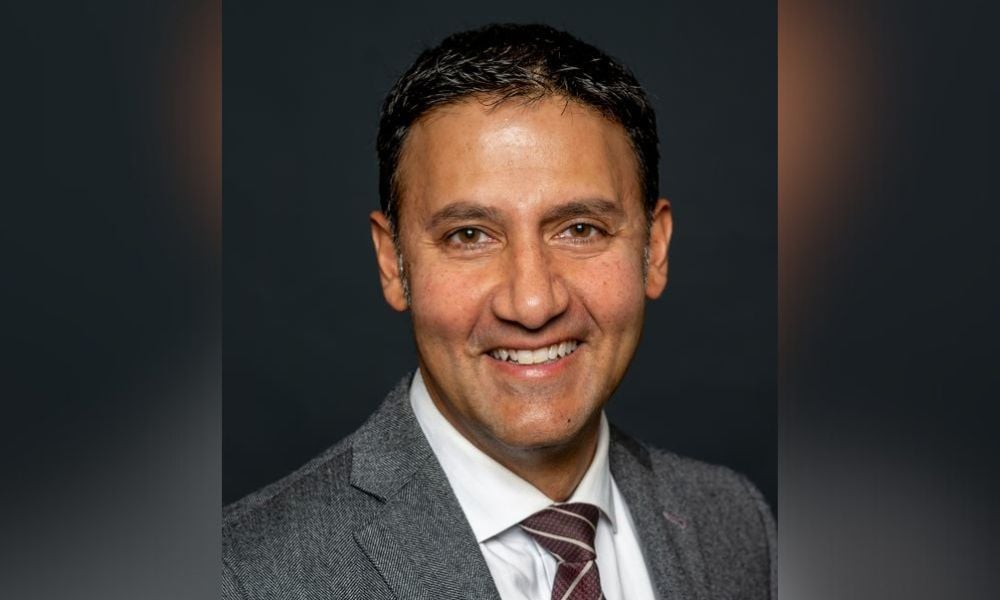While the Law Society of Upper Canada is looking at solutions to the articling crisis, practical training remains a key requirement, says the head of its articling task force.
“In the formation of a competent and ethical lawyer, some form of practical training is essential,” said Tom Conway, chairman of the LSUC’s articling task force.
Conway was speaking at a public consultation on articling in Toronto on Jan. 18 to discuss the options suggested in the task force’s recent report.
In an effort to address Ontario’s shortage of articling positions, the law society has proposed five options for the province’s licensing process:
1. The status quo;
2. The status quo with quality assurance improvements;
3. The replacement of a pre-licensing transition requirement with a post-licensing transition requirement;
4. A choice of either articling or a practical legal training course; or
5. Only a practical legal training course
There was widespread support for option 4 from attendees at the consultation. Although no one said so explicitly, it seems that the law society is leaning that way as well.
Bencher Barbara Murchie said option 4 would better suit students planning to practise at a small firm or become a sole practitioner as the law society would encourage those types of lawyers to provide the placements. Currently, 71 per cent of all articling positions are offered at medium- and large-size firms.
Ontario Bar Association past president Lee Akazaki explained why he endorses the dual option. “I think No. 4 is the only viable option. Numbers one, two, and three are all dependent upon market variables . . . and it’s not the law society’s role to tinker with the legal market and the ability of law firms to provide these placements.”
The “after law school” or “during law school” component of option 4 would allow students to complete a PLTC, provided by a third party, during their third year of law school if they so wish. This aspect is a result of the Carnegie Foundation for the Advancement of Teaching’s report, which recommended that the final year of law school consist of purely practical training. Some law schools in the United States have already adopted this model, such as Washington and Lee University in Virginia.
Aaron Rankin, a third-year student at the University of Toronto Faculty of Law and president of its Students’ Law Society, says students should get to choose the kind of practical training they receive.
“I think that students would appreciate the choice to have a third year that lets them engage in clinical work [and] helps them along their licensing requirement at the same time,” he says. “Some other students I’m sure would still prefer to pursue academic legal studies more. I think students should have that choice.”
Some foreign-trained lawyers in the audience made the case for option 5, arguing it would standardize the licensing process and make it easier for equality-seeking groups to complete their practical training as statistics show they currently have more difficulty finding articling positions.
However, Akazaki argued the last option is not economically feasible. “No. 5, although it has a significant attractiveness in consistency, will involve a non-law society third-party provider to have . . . 1,400 placements taught by volunteer lawyers,” he said. “The only entity outside of the law society that can remotely come close to providing that kind of service is the Ontario Bar Association and I can tell you right now, we don’t have the space, the capacity, or the lack of volunteer fatigue . . . to provide training for 1,400 students every year.”
For more information, check out Akazaki’s blog for his detailed analysis. As well, read Catherine McKenna’s analysis of the options in Law Times.
“In the formation of a competent and ethical lawyer, some form of practical training is essential,” said Tom Conway, chairman of the LSUC’s articling task force.
Conway was speaking at a public consultation on articling in Toronto on Jan. 18 to discuss the options suggested in the task force’s recent report.
In an effort to address Ontario’s shortage of articling positions, the law society has proposed five options for the province’s licensing process:
1. The status quo;
2. The status quo with quality assurance improvements;
3. The replacement of a pre-licensing transition requirement with a post-licensing transition requirement;
4. A choice of either articling or a practical legal training course; or
5. Only a practical legal training course
There was widespread support for option 4 from attendees at the consultation. Although no one said so explicitly, it seems that the law society is leaning that way as well.
Bencher Barbara Murchie said option 4 would better suit students planning to practise at a small firm or become a sole practitioner as the law society would encourage those types of lawyers to provide the placements. Currently, 71 per cent of all articling positions are offered at medium- and large-size firms.
Ontario Bar Association past president Lee Akazaki explained why he endorses the dual option. “I think No. 4 is the only viable option. Numbers one, two, and three are all dependent upon market variables . . . and it’s not the law society’s role to tinker with the legal market and the ability of law firms to provide these placements.”
The “after law school” or “during law school” component of option 4 would allow students to complete a PLTC, provided by a third party, during their third year of law school if they so wish. This aspect is a result of the Carnegie Foundation for the Advancement of Teaching’s report, which recommended that the final year of law school consist of purely practical training. Some law schools in the United States have already adopted this model, such as Washington and Lee University in Virginia.
Aaron Rankin, a third-year student at the University of Toronto Faculty of Law and president of its Students’ Law Society, says students should get to choose the kind of practical training they receive.
“I think that students would appreciate the choice to have a third year that lets them engage in clinical work [and] helps them along their licensing requirement at the same time,” he says. “Some other students I’m sure would still prefer to pursue academic legal studies more. I think students should have that choice.”
Some foreign-trained lawyers in the audience made the case for option 5, arguing it would standardize the licensing process and make it easier for equality-seeking groups to complete their practical training as statistics show they currently have more difficulty finding articling positions.
However, Akazaki argued the last option is not economically feasible. “No. 5, although it has a significant attractiveness in consistency, will involve a non-law society third-party provider to have . . . 1,400 placements taught by volunteer lawyers,” he said. “The only entity outside of the law society that can remotely come close to providing that kind of service is the Ontario Bar Association and I can tell you right now, we don’t have the space, the capacity, or the lack of volunteer fatigue . . . to provide training for 1,400 students every year.”
For more information, check out Akazaki’s blog for his detailed analysis. As well, read Catherine McKenna’s analysis of the options in Law Times.







